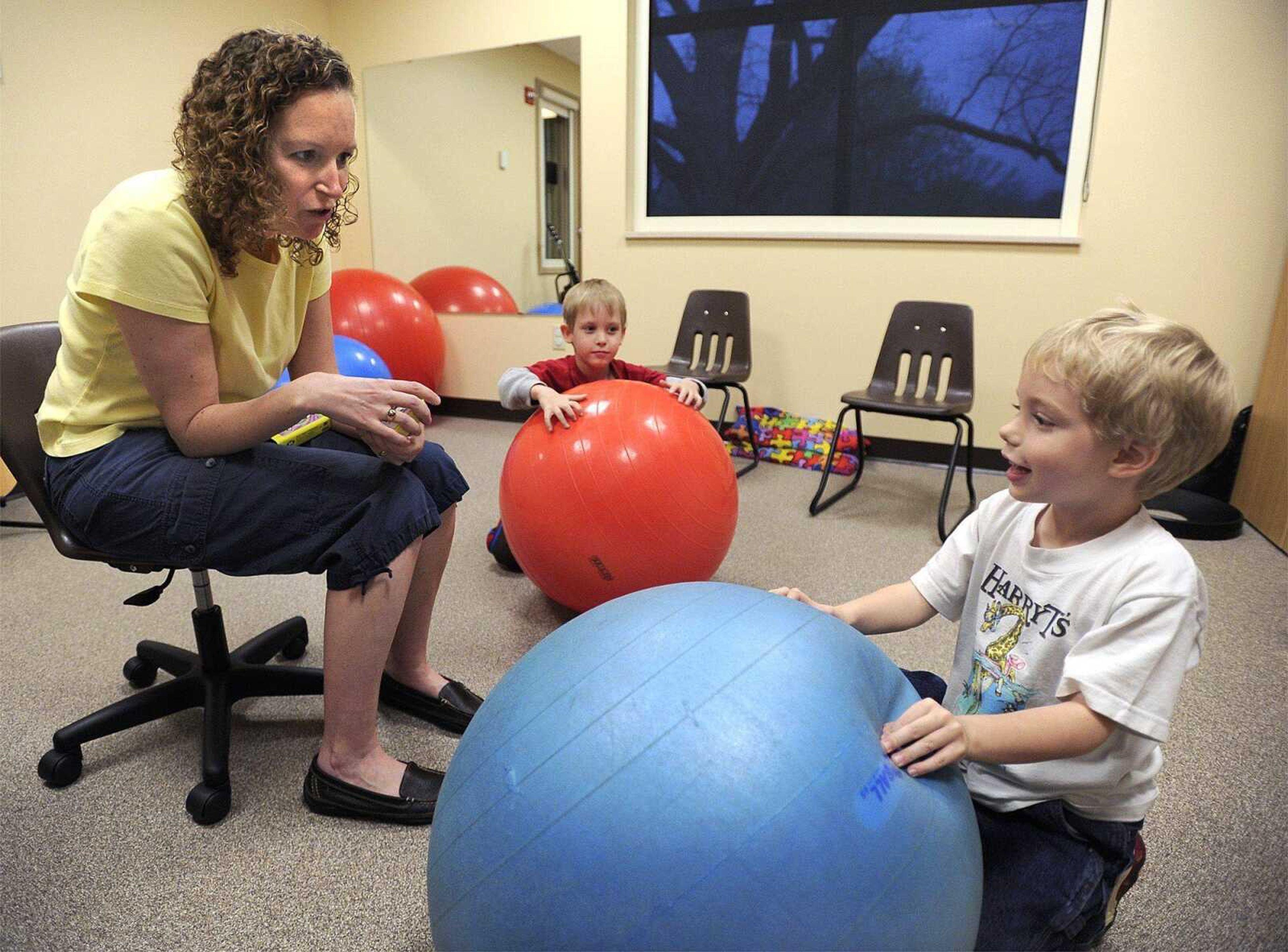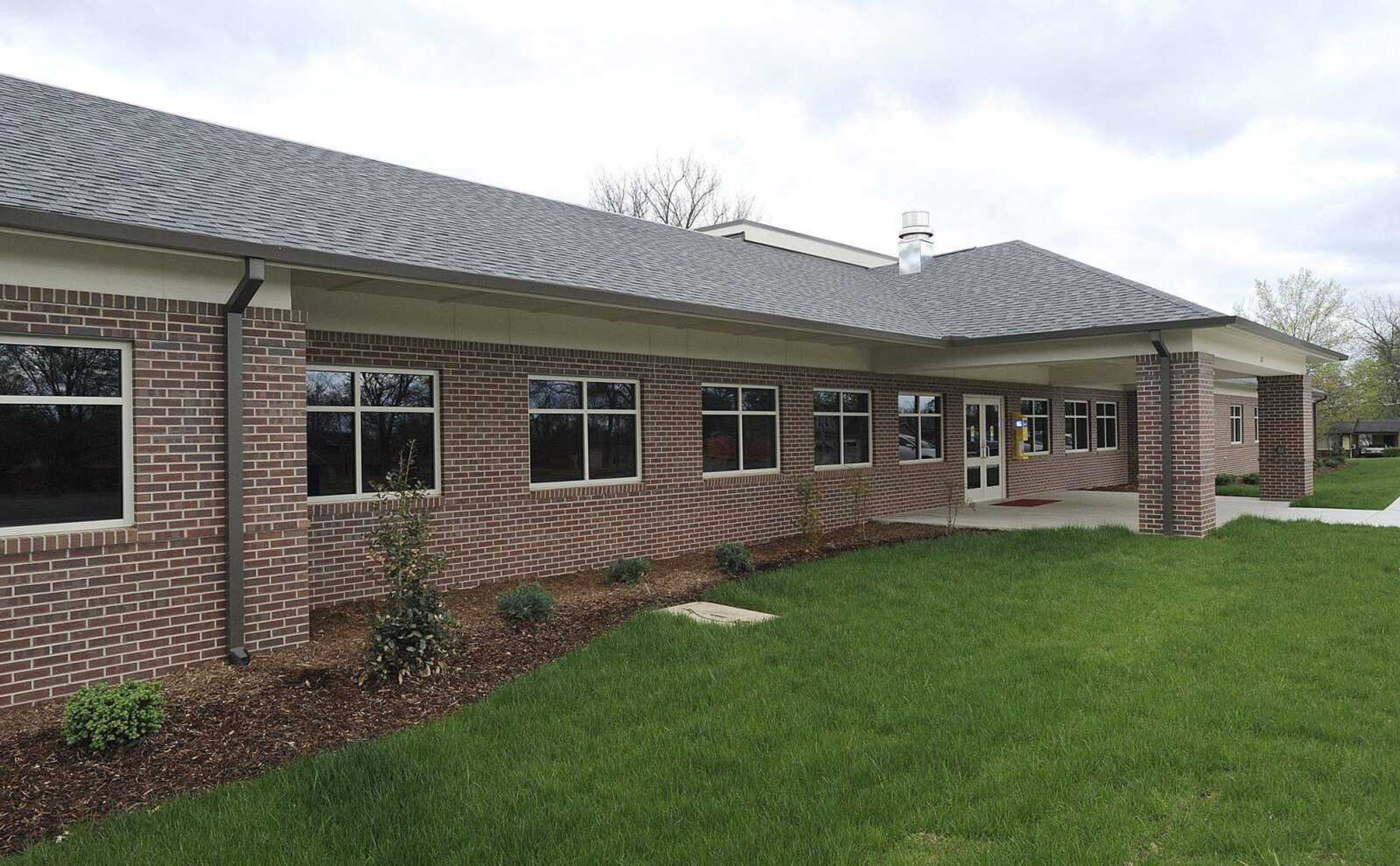Autism center organizations work together toward a shared goal
At age 13 Rex Rattler for the first time told his mother his favorite color: light green. "It was amazing. I was in tears because Rex was able to express himself," said Cynthia Brown, his mother. After an evaluation at the Autism Center for Diagnosis and Treatment, Rex was matched with assistive technology to help him verbalize his needs and wants in more than simple sentences. ...
At age 13 Rex Rattler for the first time told his mother his favorite color: light green.
"It was amazing. I was in tears because Rex was able to express himself," said Cynthia Brown, his mother.
After an evaluation at the Autism Center for Diagnosis and Treatment, Rex was matched with assistive technology to help him verbalize his needs and wants in more than simple sentences. Once he got hold of the laptop-like device with a speak button, he told her he likes chicken nuggets and wrote about his clothes in complex sentences.
"Rex is a computer whiz," she said. "He can type faster than I can."
The center at Southeast Missouri State University has been up and running for about four months. Its specialists started scheduling diagnosis appointments in November, about a month before moving into the new facility. The Tailor Institute, Touchpoint Autism Services and Thompson Center Outreach also share the building.

The center offers services in a region that was lacking resources, said Connie Hebert, director of the center. Before, families went to St. Louis, Columbia, Mo., or Arkansas for diagnosis.
"That's very stressful financially," she said. Long trips and overnight stays can be traumatic for children with autism, she said.
Families can now come to Cape Girardeau and receive an assessment within four to six weeks. She said she is seeing many families come from throughout the region, including the Bootheel. Hebert said the center conducts six to 10 assessments per month, but she expects appointments will pick up after school is finished.
Rex was diagnosed with autism when he was three, Brown said. Because the family lives in Poplar Bluff, Mo., there were few resources available after the diagnosis. Brown said her son receives occupational therapy and school services, but it was out of the question to travel regularly to St. Louis to see autism specialists.
"I'm just singing the praises of the autism center," she said. "We're fortunate and blessed to have it here."
The building includes rooms for music therapy and an efficiency apartment to teach life skills like cooking and laundry.
There is a sensory room with weighted blankets and bean bags for patients who need a quiet area during assessments and therapy. For those who need to expel energy, there is an occupational therapy room with swings and trampolines as well as a small outdoor playground with visual and audible components. A slightly bouncy rubberized flooring runs through many of the rooms, one one of several features that benefit those with sensory issues.
The biggest advantage to the facility is the ability to share resources, said Myra Bax, director for Touchpoint Autism Services, the southeast office. About 10 people work for Touchpoint out of the Cape Girardeau center, she said. The organization provides services for families in 19 counties in Southeast Missouri.
The center's setup is unusual because the different organizations can work nearby and share resources, Bax said.
"We're working toward the same goal and we're working together," she said.
The Tailor Institute provides services for high-functioning autistic people. The Thompson Center Outreach, which has not yet started using the facility, provides early intensive intervention, Hebert said.
The project's timeline was long and included some challenges, said state Sen. Jason Crowell, R-Cape Girardeau, who helped secure state funds to construct the building. The project, he said, originated under the Blunt administration.
After securing Missouri Higher Education Loan Authority funds, university officials and center staff researched other centers across the country to come up with the current format, which features resources across the autistic spectrum.
Officials broke ground on the $2.6 million center on North Fountain Street in January 2009. Gov. Jay Nixon suspended construction five days later when he put 30 state projects on hold. After a review of projects funded through MOHELA, he released funding for 18 of the projects, including the autism center.
"The commitment to have that center up and running has remained," Crowell said of the work done by two administrations. The center also receives $494,000 in operating funds from the Department of Mental Health.
The center opened at a time when legislation is pending at the state level to require insurance companies to cover autism. Similar bills were introduced in 2008 and 2009, but did not pass. Legislators have said the measure is a priority during the current session.
Hebert said the law would make treatment more equitable and accessible statewide. Services could cost $20,000 or more a year and are mostly paid out-of-pocket.
"You won't have to rely on the family's resources as much," Hebert said.
According to the advocacy group Autism Speaks, 17 states have passed insurance reform legislation, including Indiana, Illinois and Kentucky. Iowa and Kansas have laws pending a final signature from the governor.
In Missouri, there are House and Senate versions pending.
"I am confident that we can work out the differences" between the two versions, Crowell said.
The challenge to the legislation is pressure from insurance companies to require licensing for treatment providers. The requirement would create challenges for the Southeast facility because university students will be working under the guidance of specialists to help provide treatment, Crowell said. Although he agrees some oversight is necessary, he said it would not be fair to charge students for a licensing requirement.
April is Autism Awareness month. The Southeast sorority Alpha Xi Delta will hold a panel discussion at 7 p.m. April 27 at Academic Hall auditorium. The event will feature a speech by Taylor Crowe, a Cape Girardeau native who speaks nationwide about his experience with autism. Crowe and specialists from the center will be available to answer questions about the disorder.
abusch@semissourian.com
388-3627
Pertinent address:
One University Plaza Cape Girardeau, MO
611 N. Fountain St. Cape Girardeau, MO
Connect with the Southeast Missourian Newsroom:
For corrections to this story or other insights for the editor, click here. To submit a letter to the editor, click here. To learn about the Southeast Missourian’s AI Policy, click here.










